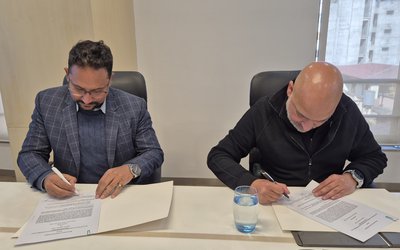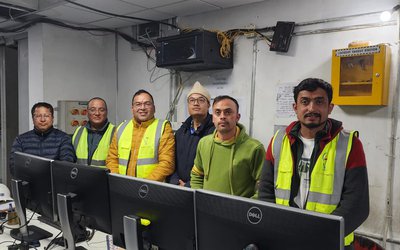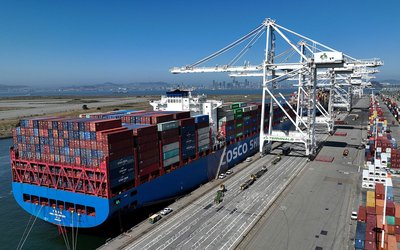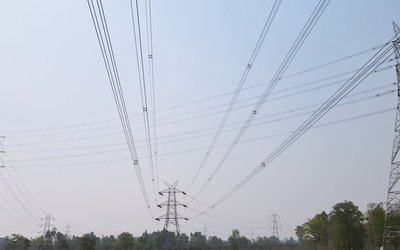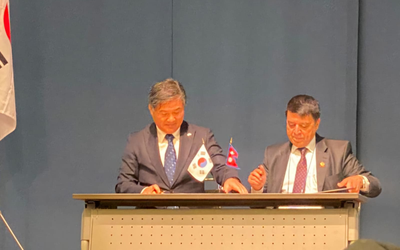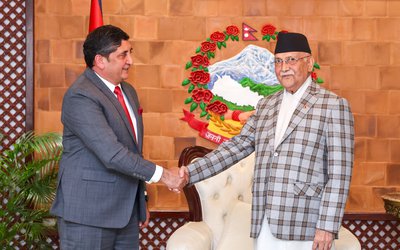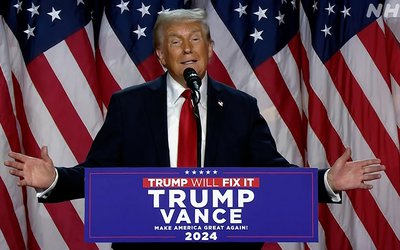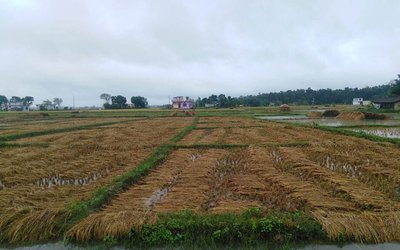At a time when India’s economy is growing at a pace of over 8 percent, countries of different regions are coming to grasp opportunities thrown up by the growth. Nepal, a close neighbor of India with an open border, has, however, yet to figure out how to benefit from it.
Jointly organized by the Indian Foreign Ministry and the Federation of Indian Chamber of Commerce and Industry (FICCI), the FICCI-MEA Foreign Policy Conclave has shown ways and possibilities to increase Nepal-India cooperation.
“India’s cooperation to Nepal, especially in areas of bilateral trade, investment and technology remained instrumental in accelerating the pace of economic development of Nepal,” said Lekhraj Bhatta, minister for commerce and supplies.
Speaking at the FICCI – MEA Foreign Policy Conclave, Minister Bhatta said. “Vibrant brainstorming in issues of mutual interest will facilitate to chart out a clear roadmap for the increased and enhanced cooperation in the areas of bilateral trade, investment and hydro power sector.”
As India is Nepal’s largest trade partner and India has been supporting Nepal in various sectors, this kind of conclave has its own importance. “India has been extending cooperation to Nepal in diverse areas and Nepal is facing challenges of managing the political transition, but attaches great importance in bringing dynamism in economy through increased engagement with the neighbors,” Bhatta said.
There were many hindrances in the past. On recently signed Bilateral Investment Promotion and Protection Agreement (BIPPA) and agreement for ending double taxation, he expressed the confidence that BIPPA and DTAA will pave the way to increase more investment to Nepal and also create opportunity to boost and expand bilateral trade between the two countries.
Many businessmen expressed the confidence that the Trade Treaty signed between the two countries in 2009 will help reduce Nepal’s trade imbalance with India.
Minister for Industry Anil Jha also called on the Indian business community to invest in education, health, infrastructure development, water resources and tourism sector in Nepal.
“Nepal needs a green revolution like that of Hariyana and Punjab in the 1990s. We can attract many tourists if we can make proper marketing of hundreds of religious and cultural heritages like Lumbini, Janakpur, Pashupatinath and Muktinath,” said Jha.
Indian Ambassador to Nepal Jayant Prasad said he had been encouraging business community in his country to invest in Nepal.
There was enormous potential for hydropower development in Nepal and that if there was enough investment, Nepal could become South Asia’s most prosperous country within the next two decades, said Prasad.
India had given high priority to relations with Nepal and the conference was organized to find ways on how to help Nepal in her economic development, said Pinak Ranjan Chakravarty of the Indian Foreign Ministry.
FICCI General Secretary Dr. Rajiv Kumar said homework will be done for Nepal-India trade expansion by establishing an office in Nepal.
Various Nepalese and Indian industrialists presented working papers on possibility to find out a way for bilateral cooperation in hydro power and expanding trade and economic cooperation.
- SWISS SUPPORT: Construction Of A Trekking Trail In Koshi
- Dec 19, 2024
- PM OLI'S VISIT TO CHINA: BRI Agreement
- Dec 16, 2024
- RASUWAGADHI AND SANJEN: Begin Generation
- Dec 03, 2024
- NEPAL, INDIA ELECTRICITY TRADE Nepal's Advantage
- Dec 02, 2024
- PM Oli'S VISIT TO CHINA: Nepal's Dilemma
- Dec 01, 2024

